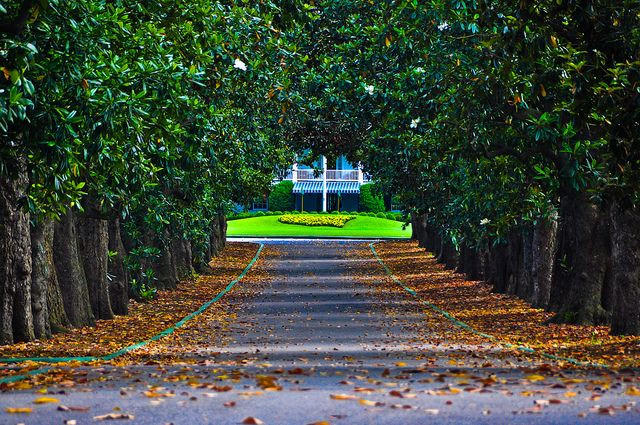Golf
Welcome and thanks for visiting...

Golf’s Greater Good

As we have all witnessed, golf only needed a pandemic to enjoy record amounts of growth within our game.
Folks that left the game have come back and folks that have never played are hitting the ranges by the droves learning the game of a lifetime because…there was nothing else to do during the dark times of our health crisis.
We learned a tremendous number of lessons during that time with some being good and some being, well, not so good. What I found to be magnifying was our need to be outside doing something with someone when, at the same time, we were asked to stay quarantined in place.
The game blossomed.
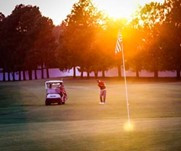
We all love the game, and those of us who coach understand the value of competitive golf and the dedication and commitment of those who play at that level. Our job is to help those individuals sharpen all aspects of their games for competitive improvement and this of course includes swing training, preparation, a cleaner mental approach, health habits, physical training, and so on.
It doesn't take long for students to understand, that the individual who is better prepared has a greater chance to achieve goals. Champions are champions because of their ability to stay focused on their goals and refuse to compromise the standards of their development and preparation. But that is an entirely different article.
Since not everyone is seeking to play competitive golf, we can scale back to the very basic nuts and bolts of our game. If interested, you could venture far back into the history of the game to when Mary, Queen of Scots, fell in love with its challenges around the year 1550. She was responsible for introducing “caddies” to the game since her royal status would demand she not carry her clubs…of course. And Mary would also be the first to “grow the game” as she introduced it to France. I doubt very much that creating a national championship so that she could be competitive was anywhere on her traverse board (navigational instrument of the 1500s). Although Mary would eventually go on to lose her head, she can be identified as the “first” lady of golf.
The point being made is simply this, the game of golf attracts so many folks simply because of the love of its challenges. Our ability to, on occasion, pull off the shot that creates the inner craving that leaves us anxious for our next round is habit-forming, and Mary certainly knew that.
The game of golf has grown to fill an awesome array of uses, from playing for exercise to being involved with a weekly league to a junior golf program to striving to be the next club champion, and the list continues. It undeniably has this awesome ability to bring folks together in a greater manner than ever before, especially when it comes to helping one’s community.
And now, we come to the purpose of this writing.
We have all played in the “Captain’s Choice” or “Scramble” format for a fundraising effort to assist a church or community project in raising money so children could be afforded the basics in school supplies etc. Even an auto dealership that supports the Diabetes Foundation will support a golfing fundraising tournament. This list, too, goes on and on.
But do we understand the impact of these events and what it means to our communities? First, it doesn't need to be said but I will say it anyway, the government is not able to fund everything that we feel the need to fly a flag for. The government was never designed to do such work and that is where we as citizens of our communities come together and rally behind important causes and programs through something we enjoy doing and that is…golf.
In North Carolina alone, charitable golf tournament fundraising efforts have raised as much as 132 million dollars in a single year. These funds went to churches, civic organizations such as the Lions and Rotary Clubs, Boys and Girls Scouts of America, Historical Black Colleges and Universities, American Heart Association, high school sports teams, Folds of Honor, and this list would take far too long to complete! These events provide the necessary funding for our community programs and, in return, provide opportunities for wellness, especially for our youth.
And I would also like to make another point of clarity. All any child wants, and I do mean any child, is to have an opportunity. Not every child understands what that may entail, and we could easily leave it to the responsibility of our educational system, but this is far from the truth or the need. Although we lean on our schools and teachers, it is also the responsibility of our communities to take on the necessary tasks of providing after-school and weekend programs for example that foster the development of the child. There is a reason the “old saying” of “it takes a village” came to be.
This brings me to the point of telling you about three programs embraced at Hillandale Golf Course a city-owned facility in Durham, North Carolina. Specifically, there are three programs the facility has either created or supports. They are designed to help at-risk youth.
First, to define “at-risk youth,” we look at two very basic needs. The first is the provision of a safe and nurturing home with food and shelter, educational needs being met, emotional growth and well-being, and so on by parents who may or may not have the resources to provide. The attributes mentioned allow the child to have what we shall call a “successful passage” into adulthood.
Some parents do the very best that is available to them, while others simply choose something far different, exposing children to awful living conditions and experiences. As a former Guardian ad Litem, I can tell you firsthand that some living conditions for children who only wish for an opportunity can be appalling.
The second is the health of the child, and this covers childhood illnesses etc. Both conditions are not always addressed, and both have parents yearning for a community to embrace them with help. The following is what one golf course and its management team have chosen to do.
At Hillandale Golf Course (owned by The City of Durham) we have created one program and adopted two others to address both groups of at-risk children. First, we will look at the Folds of Honor. This program addresses the nearly 87% of the children of our fallen and gravely wounded military heroes who will NOT receive government assistance for higher levels of education.
So, let me help you understand that statement.
When a member of our military gives to us their last full measure to secure the fundamental freedoms of our Constitution, we should, as a nation, embrace that family to our fullest abilities to include ensuring the children left behind have the tools to be successful citizens within our nation. But we don’t.
This should also include the remaining spouse, who may need to be retooled educationally to carry on the burden of providing for the family. This is where the Folds of Honor steps in. Through company donations and golf courses embracing Patriot Golf Week, the Folds of Honor raises millions of dollars each year to provide scholarships, ensuring we honor the legacies of our fallen and gravely wounded. To date, Hillandale Golf Course, a public golf course, has raised over $220,000 for the Folds of Honor better described as 44 scholarships.
On the 18th fairway, every year during Labor Day weekend, the staff lays down the branches of service, rank, and names of over 200 North Carolinians who have fallen in the line of military duty since the beginning of Operation Iraqi Freedom.
The Fairway of Honor is a reminder that families left behind live with the loss and a grateful nation know the debt is great.
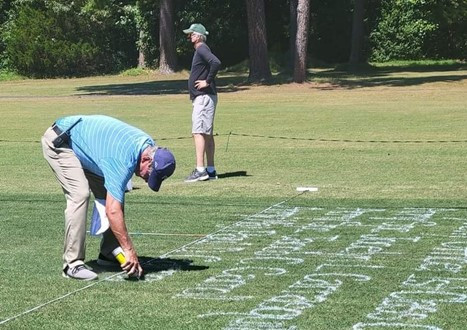
Next, we have the H.E.A.R.T.S. Club program (an acronym for Hillandale Embracing A Really Tough Situation), and this foundation loves up the children and their families at Duke Children’s Hospital who are battling Leukemia and other blood and marrow diseases. For most of these children, this is the last effort at saving their life.
And if you have ever looked into the eyes of a mother who is desperate for her child’s life, well, it sticks with you, and we have seen far too many of those “looks”. Another point of clarity for you is cancers do not care how much money you have or don’t have or whether you can afford to fix your car or make a house payment.
It is vicious and preys on the most vulnerable of us, our children, and in turn, affects the families. This is where the H.E.A.R.T.S. program comes in. We hold an annual fundraising tournament and receive donations so this program can provide basic needs for the families to include sponsoring a family reunion, providing laptop computers so patients can continue with their education, providing gift cards for gas so families can get to and from the hospital, repair vehicles so families can have safe reliable travel, make house and rent payments, and the program has assisted in the burial of children.
Yes, you read that correctly.
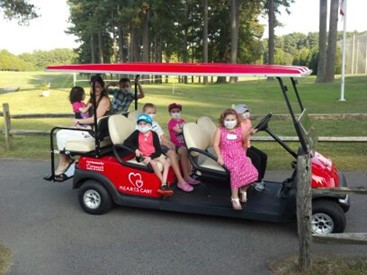
This provides for you a small list of what this program does and if the child is capable and has an interest in golf, you guessed it, we love them up with a new set of golf clubs, lessons and that child and their family have been granted carte blanche at this facility and they are not asked for any monies in return.
Lastly, for the purpose of this article only, as we support three other programs, we support the SwingPals program by donating the use of a building and this facility for the program to be successful.
SwingPals goes into the neighboring schools and embraces the children of families with very limited resources and, using golf, teaches the children to “own their own space”. The process involves teaching children they can take control of their emotions in decision-making and so much more. This program serves approximately 1,000 students annually both in-school programs and programs at Hillandale.
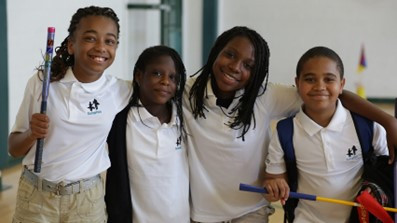
SwingPals has two buses they use to transport their students to and from school/home to Hillandale Golf Course. Like so many programs that depend on contributions, during the pandemic, it took a new shape. Although not being able to meet with the children due to restrictions, SwingPals founder Doug Hodges, PGA took to the streets and fundraised over $90,000 and bought food for the families and delivered it to them.
Thankfully, PGA Tour member, Harold Varner III has embraced this program and made a very generous contribution to its efforts. But this program like so many others depends on contributions from individuals who understand the program's value.
Facilities all over the nation have made the decisions to embrace their community needs and through our great game, have generated dollars to fund such programs for the greater good. It does take a village to support the village and it all starts with embracing our children. All of them.
So, the next time you are invited to play in a fundraising event, pay your entry fee, add a little more, and know that on that day, you are the greater good.






